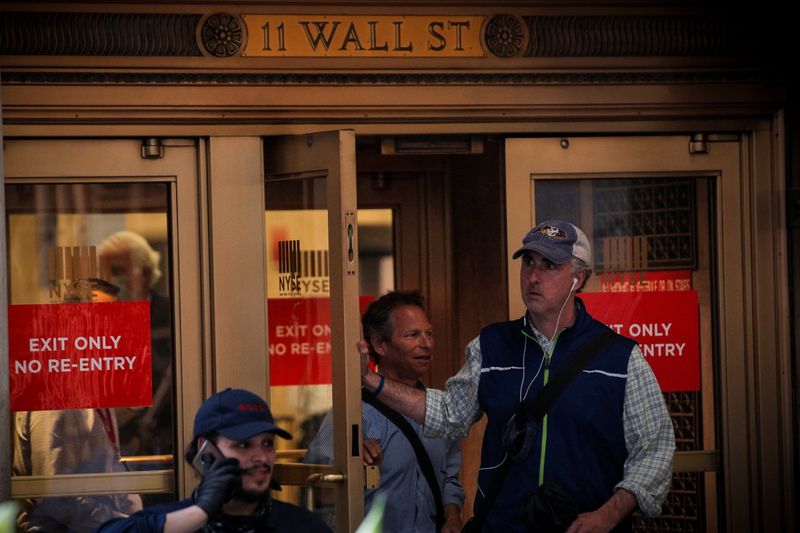NEW YORK (Reuters) – Global equity benchmarks moved higher in choppy trading on Thursday as investors gauged the potential economic impact of a surge in U.S. coronavirus cases and loosening restrictions on the U.S. banking sector, while perceived safe-haven assets, including U.S. Treasuries and the dollar, edged higher.
In the United States, Florida, Oklahoma and South Carolina reported record increases in new cases on Wednesday and Australia posted its biggest daily rise in two months.
The governors of New York, New Jersey and Connecticut ordered travelers from eight other states to quarantine on arrival, a worry for investors who had mostly been expecting an end to pandemic restrictions.
Disney has delayed the re-opening of theme parks and resorts in California, and Texas is facing a “massive outbreak” and considering new localized restrictions, its governor said.
After a white-hot few months in which world stock markets rebounded nearly 40%, nervousness about the impact of COVID-19 continues to weigh on investor sentiment.
“There is a little bit of reality bites coming,” said Damian Rooney, senior institutional salesman at stockbroker Argonaut in Perth. “I don’t think there was a particular straw that broke the camel’s back, but people are a little bit twitchy.”
MSCI’s gauge of stocks across the globe gained 0.49% following modest gains in Europe led by Germany, which reported rising consumer confidence.
On Wall Street, the Dow Jones Industrial Average rose 298.77 points, or 1.17%, to 25,744.71, the S&P 500 gained 33.34 points, or 1.09%, to 3,083.67 and the Nasdaq Composite added 107.84 points, or 1.09%, to 10,017.00.
U.S. banking stocks rose after regulators eased restrictions on cash levels and made it easier for institutions to make larger investments in venture capital funds.
Weekly jobless claims data showed weak demand is forcing U.S. employers to lay off workers, even as businesses reopen. Claims totaled a seasonally adjusted 1.480 million for the week ended June 20, and although down from 1.540 million the prior week, it was higher than the 1.3 million forecast in a Reuters poll.
Concerns about economic damage from the coronavirus pandemic helped bolster the dollar and government bonds.
The dollar index rose 0.129%, with the euro down 0.25% to $1.1222.. Benchmark 10-year notes last rose 1/32 in price to yield 0.6806%, from 0.684% late on Wednesday.
The slight decline in U.S. jobless claims helped bolster oil prices. U.S. crude recently rose 2.74% to $39.05 per barrel and Brent was at $41.35, up 2.58% on the day
(Reporting by David Randall; Editing by Dan Grebler and Alistair Bell)

























